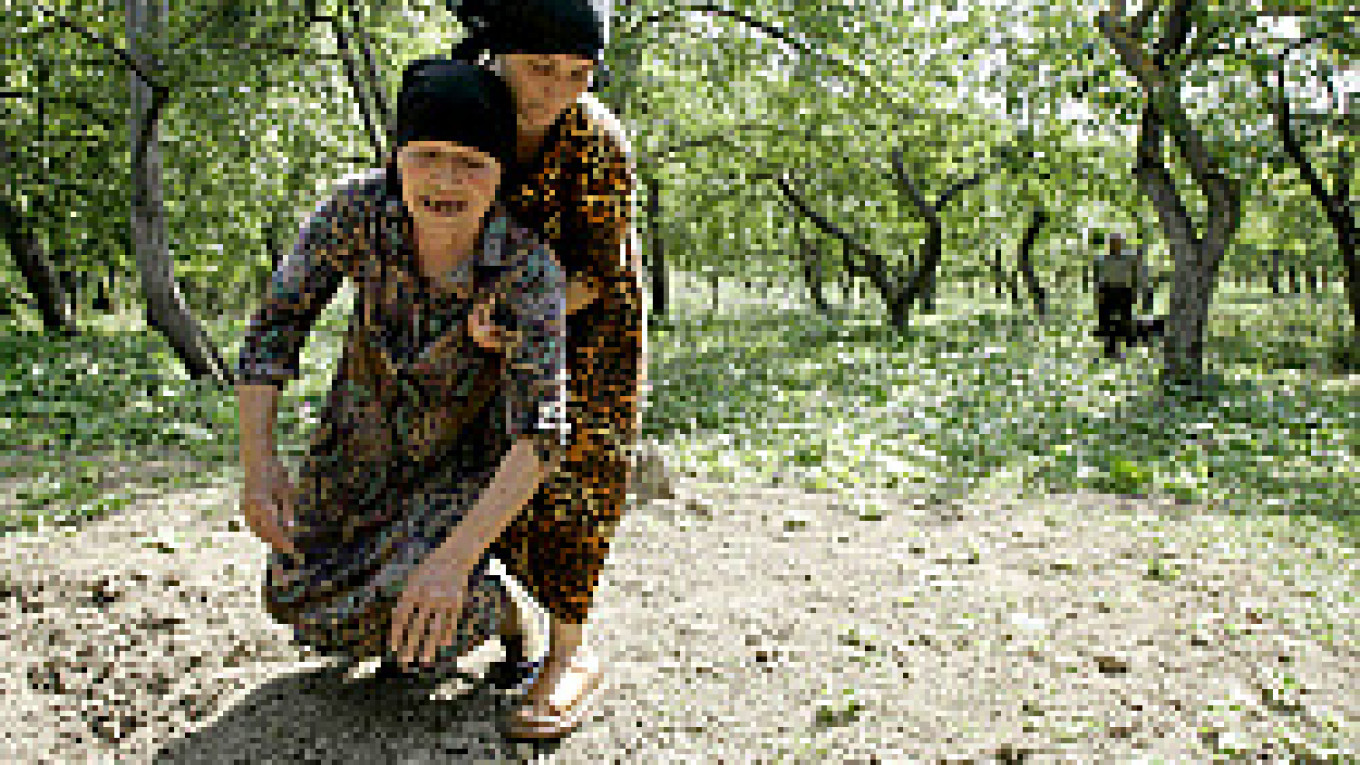"Georgians must not return here. Ossetia is for Ossetians," Guzitayev spat, sitting on a bench in Ksuisi two weeks later. "Let the Georgians suffer. Now we are independent from them."
Arson gangs have targeted the homes of ethnic Georgians in breakaway South Ossetia as the conflict over control threatens to erase a centuries-old ethnic mix. Since the warfare between Georgia and Russia in early August, Associated Press reporters have witnessed burning homes and looting in villages.
The conflict has pitted neighbor against neighbor in this region of mountain slopes and fruit orchards where two ethnic groups have lived side by side for centuries: Georgians, whose culture is rooted on the Black Sea coast, and Ossetians, whose language and customs point to the east.
Georgia says at least 28,800 ethnic Georgians have fled South Ossetia in recent weeks, part of a larger exodus of 160,000 people from the conflict zone. South Ossetian officials say the region's population of Georgians was only 14,000 when the fighting started. Whatever the figure, no one disputes that there are few Georgians left in South Ossetia.
Olia Bugadze, 68, is one of a handful of ethnic Georgians left in Ksuisi. She said she hid in a corn field as Russian troops swept through, then watched as neighbors descended on her home, looted it and set it on fire. Now she camps in the ruins of her kitchen.
"I am afraid," Bugadze said. "Every day they threaten me and want to drive me out of Ossetia."
Georgian officials say some ethnic Georgian men were summarily shot by militia fighters in the aftermath of the fighting, a claim that The AP was not able to independently confirm. However, an AP reporter saw dozens of ethnic Georgians ?€” all middle-aged or older men ?€” who were rounded up after the fighting and held in the basements of South Ossetia's Interior Ministry. They were forced to haul debris on streets bombed by Georgian rockets. The AP saw at least three such groups escorted by armed South Ossetian policemen.
Asmat Babutsidze lived in the hamlet Achabeti, a predominantly Georgian village in South Ossetia. After the fighting ended, she said, men with guns looted and torched her home and took her to a jail in Tskhinvali. There, she said, she was locked in a basement cell with 43 other women, most of them ?€” like her ?€” ethnic Georgians. Guards, she said in an interview in Tbilisi, mocked and kicked the hostages. Women were forced to sweep the streets, she said, while men were made to bury the dead.
South Ossetian leader Eduard Kokoity said some Georgian civilians were detained for their own protection, not as part of an effort at collective punishment. But Kokoity also said any ethnic Georgian civilians who sided with Georgian military forces would not be allowed to return. "We warned them in advance," he said.
David Sanakoyev, a South Ossetian government official, said 182 Georgian civilians were detained for their own protection and that they were eventually bused to the Georgian side. The last group of 85 men was escorted to Georgia on Wednesday, he said.
Georgian officials charge that there was a coordinated campaign against ethnic Georgian civilians in Ossetian- and Russian-controlled areas.
Over the past three weeks, AP reporters have witnessed burning homes in more than half a dozen Georgian villages. On Aug. 11, an AP reporter saw looting by armed men in Georgian villages north of the South Ossetian capital of Tskhinvali ?€” as Russian troops stood by. Another reporter saw burning and looting of Georgian homes in at least six separate areas from Aug. 22 through Thursday: the villages of Achabetiug, Kekhvi, Tamarasheni, Ksuisi and Eregvi, as well as near Tskhinvali.
Human Rights Watch said Ossetian militias have been involved in systematic persecution of ethnic Georgian civilians. Rachel Denber, deputy director of the Europe and Central Asia division of Human Rights Watch, said satellite images confirm militia attacks on ethnic Georgian villages in South Ossetia and "emphasize the need for Russian authorities to hold these militias accountable."
In Soviet times, Ksuisi residents said, Ossetians and Georgians lived harmoniously in the prosperous village surrounded by corn fields, grapevines and orchids with peaches and apples.
Now the some 400 homes in the hamlet's Georgian quarter appear to have been burned and looted. Of about 700 Ossetian houses, a small number ?€” including a school ?€” bore the marks of damage from Georgian artillery fire.
Many Ossetians say their ethnic Georgian neighbors bear collective guilt for Tbilisi's assault. The mother of Guzitayev's friend, Lenya Doguzov, clutched the earth and wailed in an orchard that had been her son's grave site before his body was moved to a cemetery. "Georgians should lie next to my son," Yekaterina Doguzova, 70, said bitterly as she grieved alongside her daughter-in-law Zemfira Doguzova, 34.
A Message from The Moscow Times:
Dear readers,
We are facing unprecedented challenges. Russia's Prosecutor General's Office has designated The Moscow Times as an "undesirable" organization, criminalizing our work and putting our staff at risk of prosecution. This follows our earlier unjust labeling as a "foreign agent."
These actions are direct attempts to silence independent journalism in Russia. The authorities claim our work "discredits the decisions of the Russian leadership." We see things differently: we strive to provide accurate, unbiased reporting on Russia.
We, the journalists of The Moscow Times, refuse to be silenced. But to continue our work, we need your help.
Your support, no matter how small, makes a world of difference. If you can, please support us monthly starting from just $2. It's quick to set up, and every contribution makes a significant impact.
By supporting The Moscow Times, you're defending open, independent journalism in the face of repression. Thank you for standing with us.
Remind me later.


